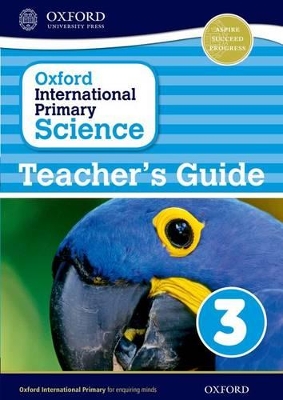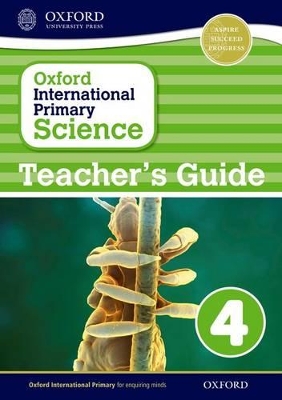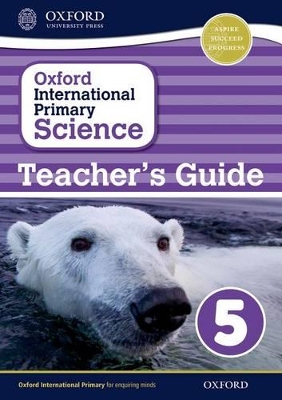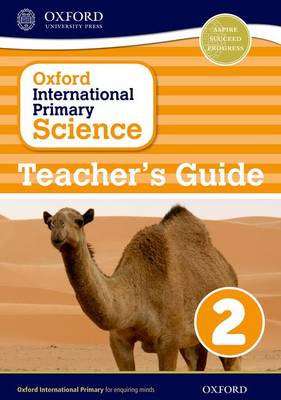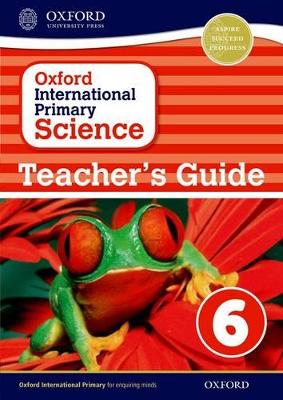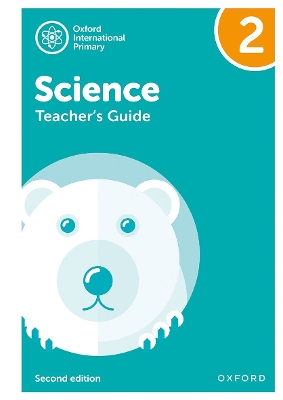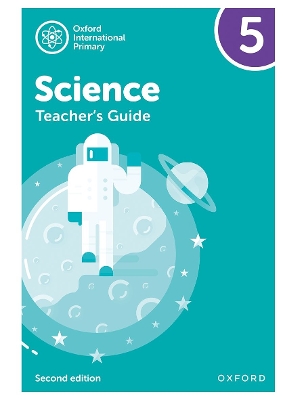Oxford International Primary Science
8 total works
Oxford International Primary Science: First Edition Teacher's Guide 1
by Alan Haigh, Deborah Roberts, and Geraldine Shaw
As students progress through the course, they not only learn about science but how to think like a scientist. They learn the language of scientific enquiry, for example the meaning of observe and predict in a scientific context, as well as the important key words for talking about a topic.
The topics are explored in careful stages, introducing different aspects at a pace that allows students to absorb and practise what they have learned.
Photos, illustrations and diagrams are used to help students explore and understand, and the language is clear and easy for primary children to understand.
For the teacher, the Teacher's Guides provide step-by-step notes for each lesson, guiding students through the topic, and supporting students with their language development when needed
Oxford International Primary Science: First Edition Teacher's Guide 3
by Alan Haigh, Deborah Roberts, and Geraldine Shaw
As students progress through the course, they not only learn about science but how to think like a scientist. They learn the language of scientific enquiry, for example the meaning of observe and predict in a scientific context, as well as the important key words for talking about a topic.
The topics are explored in careful stages, introducing different aspects at a pace that allows students to absorb and practise what they have learned.
Photos, illustrations and diagrams are used to help students explore and understand, and the language is clear and easy for primary children to understand.
For the teacher, the Teacher's Guides provide step-by-step notes for each lesson, guiding students through the topic, and supporting students with their language development when needed
Oxford International Primary Science: First Edition Teacher's Guide 4
by Alan Haigh, Deborah Roberts, and Geraldine Shaw
As students progress through the course, they not only learn about science but how to think like a scientist. They learn the language of scientific enquiry, for example the meaning of observe and predict in a scientific context, as well as the important key words for talking about a topic.
The topics are explored in careful stages, introducing different aspects at a pace that allows students to absorb and practise what they have learned.
Photos, illustrations and diagrams are used to help students explore and understand, and the language is clear and easy for primary children to understand.
For the teacher, the Teacher's Guides provide step-by-step notes for each lesson, guiding students through the topic, and supporting students with their language development when needed.
Oxford International Primary Science: Stage 5: Age 9-10: First Edition Teacher's Guide 5
by Alan Haigh, Deborah Roberts, and Geraldine Shaw
As students progress through the course, they not only learn about science but how to think like a scientist. They learn the language of scientific enquiry, for example the meaning of observe and predict in a scientific context, as well as the important key words for talking about a topic.
The topics are explored in careful stages, introducing different aspects at a pace that allows students to absorb and practise what they have learned.
Photos, illustrations and diagrams are used to help students explore and understand, and the language is clear and easy for primary children to understand.
For the teacher, the Teacher's Guides provide step-by-step notes for each lesson, guiding students through the topic, and supporting students with their language development when needed
Oxford International Primary Science: Teacher's Guide 2
by Alan Haigh, Deborah Roberts, and Geraldine Shaw
As students progress through the course, they not only learn about science but how to think like a scientist. They learn the language of scientific enquiry, for example the meaning of observe and predict in a scientific context, as well as the important key words for talking about a topic.
The topics are explored in careful stages, introducing different aspects at a pace that allows students to absorb and practise what they have learned.
Photos, illustrations and diagrams are used to help students explore and understand, and the language is clear and easy for primary children to understand.
For the teacher, the Teacher's Guides provide step-by-step notes for each lesson, guiding students through the topic, and supporting students with their language development when needed.
Oxford International Primary Science: First Edition Teacher's Guide 6
by Alan Haigh, Deborah Roberts, and Geraldine Shaw
As students progress through the course, they not only learn about science but how to think like a scientist. They learn the language of scientific enquiry, for example the meaning of observe and predict in a scientific context, as well as the important key words for talking about a topic.
The topics are explored in careful stages, introducing different aspects at a pace that allows students to absorb and practise what they have learned.
Photos, illustrations and diagrams are used to help students explore and understand, and the language is clear and easy for primary children to understand.
For the teacher, the Teacher's Guides provide step-by-step notes for each lesson, guiding students through the topic, and supporting students with their language development when needed
Oxford International Science: Teacher Guide 2: Second Edition
by Deborah Roberts, Terry Hudson, Alan Haigh, and Geraldine Shaw
· Students learn to think creatively through answering questions about the world around them
· Engaging topics have been selected to develop a sense of value and responsibility to living things and the planet
· Students learn the language of scientific enquiry, for example the meaning of observeand predictin a scientific context, as well as the important key words for talking about a topic
· For the teacher, the Teacher's Guides provide step-by-step notes for each lesson, guiding students through the topic, and supporting students with their language development when needed
· Interactive eBooks on Oxford Owl for School make front-of-class or online teaching simpleâ
· Downloadable assessment resources help teachers track and evaluate students' progress against key learning outcomesâ
Oxford International Primary Science: Teacher Guide 5: Second Edition
by Deborah Roberts, Terry Hudson, Alan Haigh, and Geraldine Shaw
· Students learn to think creatively through answering questions about the world around them
· Engaging topics have been selected to develop a sense of value and responsibility to living things and the planet
· Students learn the language of scientific enquiry, for example the meaning of observeand predictin a scientific context, as well as the important key words for talking about a topic
· For the teacher, the Teacher's Guides provide step-by-step notes for each lesson, guiding students through the topic, and supporting students with their language development when needed
· Interactive eBooks on Oxford Owl for School make front-of-class or online teaching simpleâ
· Downloadable assessment resources help teachers track and evaluate students' progress against key learning outcomesâ

